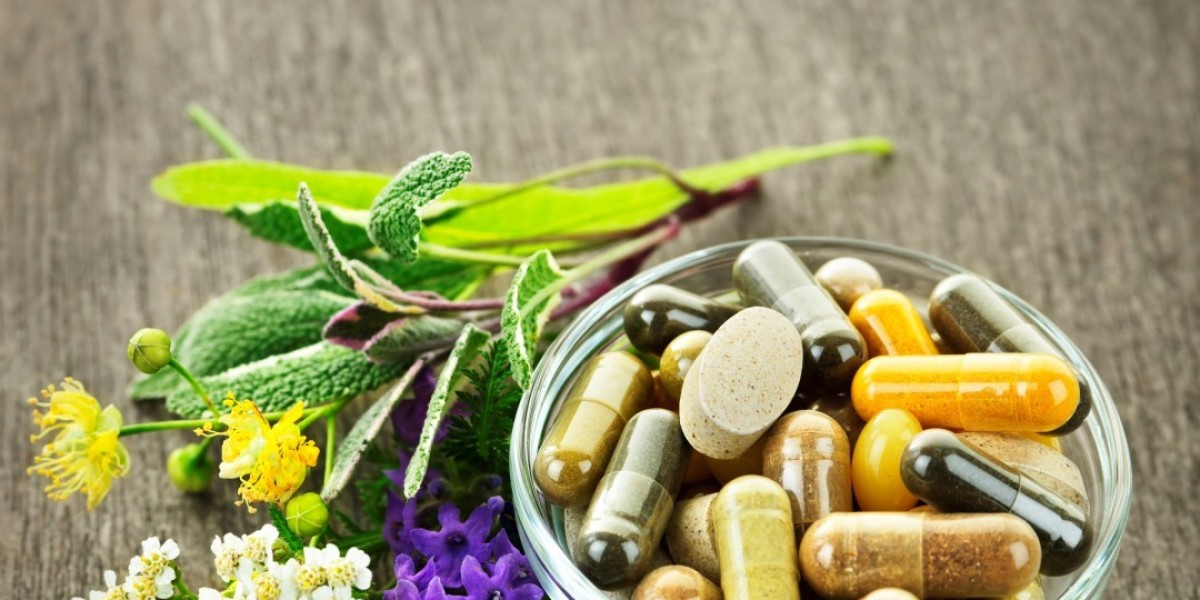The herbal medicinal products market is gaining prominence owing to growing consumer preference for herbal remedies over conventional medicines. Herbal medicines are formulated using natural plant-based materials and organic compounds that help boost immunity and manage chronic conditions like cardiovascular diseases, diabetes, and cancer more effectively and safely than synthetically-produced pharmaceutical drugs. The global herbal medicinal products market is estimated to be valued at US$ 199.07 Bn in 2024 and is expected to exhibit a CAGR of 7.7% over the forecast period 2023 to 2030.
Key Takeaways
Key players operating in the herbal medicinal products market are Blackmores Limited,Sanofi-Aventis Healthcare PTY Ltd.,Arkopharma SA,Nutraceutical Corporation,STADA Arzneimittel AG,Himalaya Global Holdings Ltd,Integria Healthcare,Boiron Group,Young Living Essential Oils, Mountain Rose Herbs. Key players are focused on expanding their product portfolio through research and development of new herbal formulations.
The market provides opportunities for new entrants to offer herbal medications targeting lifestyle diseases and chronic conditions. With rising awareness, demand for herbal supplements for immunity, bone health, heart health, sleep, and digestive issues is growing. Technological advancements in phytochemical analysis, standardization and development of other herbal drug delivery systems like capsules, tablets, and syrups have improved efficacy and consumer acceptance of herbal products.
Market Drivers
The growing geriatric population worldwide prone to chronic health issues is a key driver boosting demand for herbal medications. Herbal medicines provide effective relief and management of age-related illnesses like joint pain, memory disorders, eyesight issues, gastrointestinal problems at lower costs and fewer side effects than chemical drugs. Additionally, changing consumer health perceptions, growing preference for organic and natural remedies is propelling the herbal medicinal products market gains.
Current challenges in herbal medicinal products market:
The herbal medicinal products market is facing challenges due to lack of standardization and stringent regulations. As composition of herbal products varies based on sourcing of raw materials, quality control and clinical efficacy testing remains a concern. Furthermore, risk of product adulteration, contamination and substituting authentic plants with related substitutes puts patient safety at risk. Stricter rules and identification standards need to be adopted to address these issues and gain patient and physician confidence in herbal remedies.
SWOT Analysis
Strength: Herbal medicines have wide acceptance due to natural ingredients and less side effects. Growing preference for plant-based products fosters market growth.
Weakness: Quality inconsistencies due to sourcing of raw materials pose safety concerns. Lack of scientific validation limits mainstream adoption.
Opportunity: Emerging economies offer hugeScope as herbal drugs are deeply ingrained in cultures. Advancements in extraction technologies boost standardized production.
Threats: High R&D costs for clinical trials and regulatory approvals. Strong competition from allopathic drugs hinders herbal drug acceptance.
The herbal medicinal products market in China and India account for over 50% share due to deep roots of Ayurveda and traditional Chinese medicine. Both countries have a large population seeking natural therapies. The market in Latin America is witnessing fastest gains on back of increasing herb-derived supplements consumption along with traditional medicines in countries such as Brazil and Mexico.








